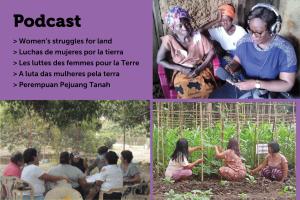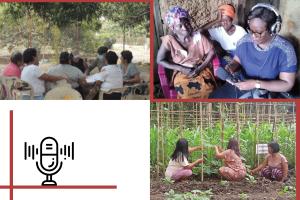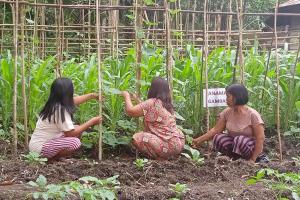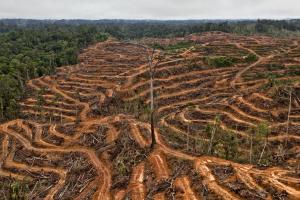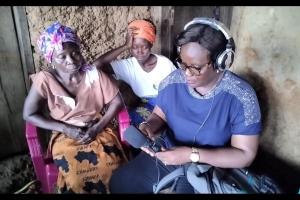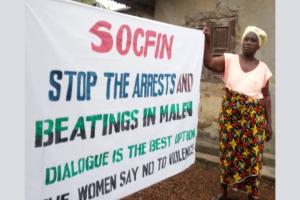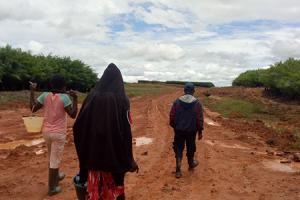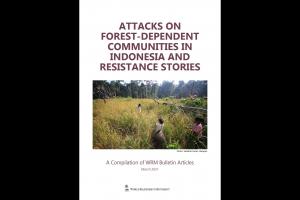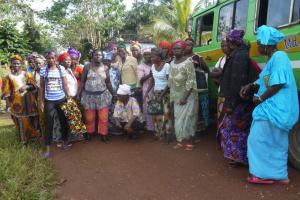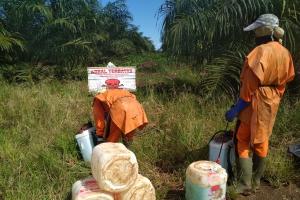Women in Resistance
When forests are destroyed, women in forest-dependent communities are hit hard: Their living conditions are particularly precarious; and providing food, medicine, materials and clean water becomes even harder. The traditional knowledge and wisdom that women pass down from generation to generation are also at risk. That is why women are often on the frontlines of the resistance to forest destruction.
Oil palm company Socfin has meant oppression for affected communities. Yet, women have to confront another patriarchic system. Paramount Chiefs are the custodian of the land according to customary law, which often give men decision-making and ownership power over land.
Oil palm plantations are one of the most unsafe spaces for women, not only because of their vulnerable working status packed with injustices and precarities, but also because of the potential for sexual violence and harassment. (Available in Indonesian).
WRM Bulletin Compilation. Available in English and Indonesian.
Patriarchal oppression is inseparable from the industrial plantation model, and it is at the base of how companies generate profits. Companies target women, including due to their fundamental role in community life.
Exploitative working conditions in the oil palm plantations’ industry in Indonesia are persistent and the main victims are mostly women. Although this situation is often overlooked, the production process of the world’s largest producer of palm oil is strongly influenced by its existence.
